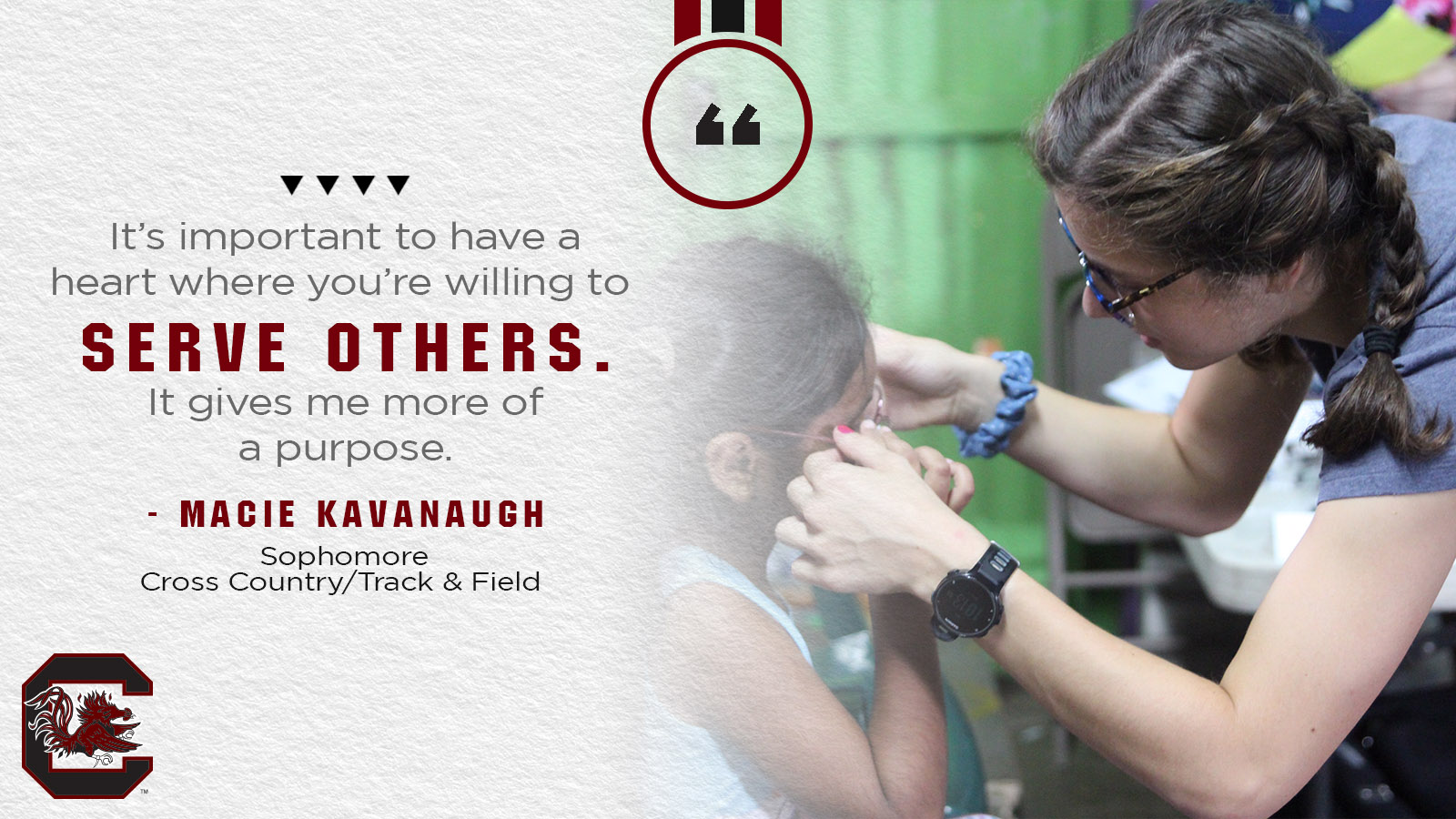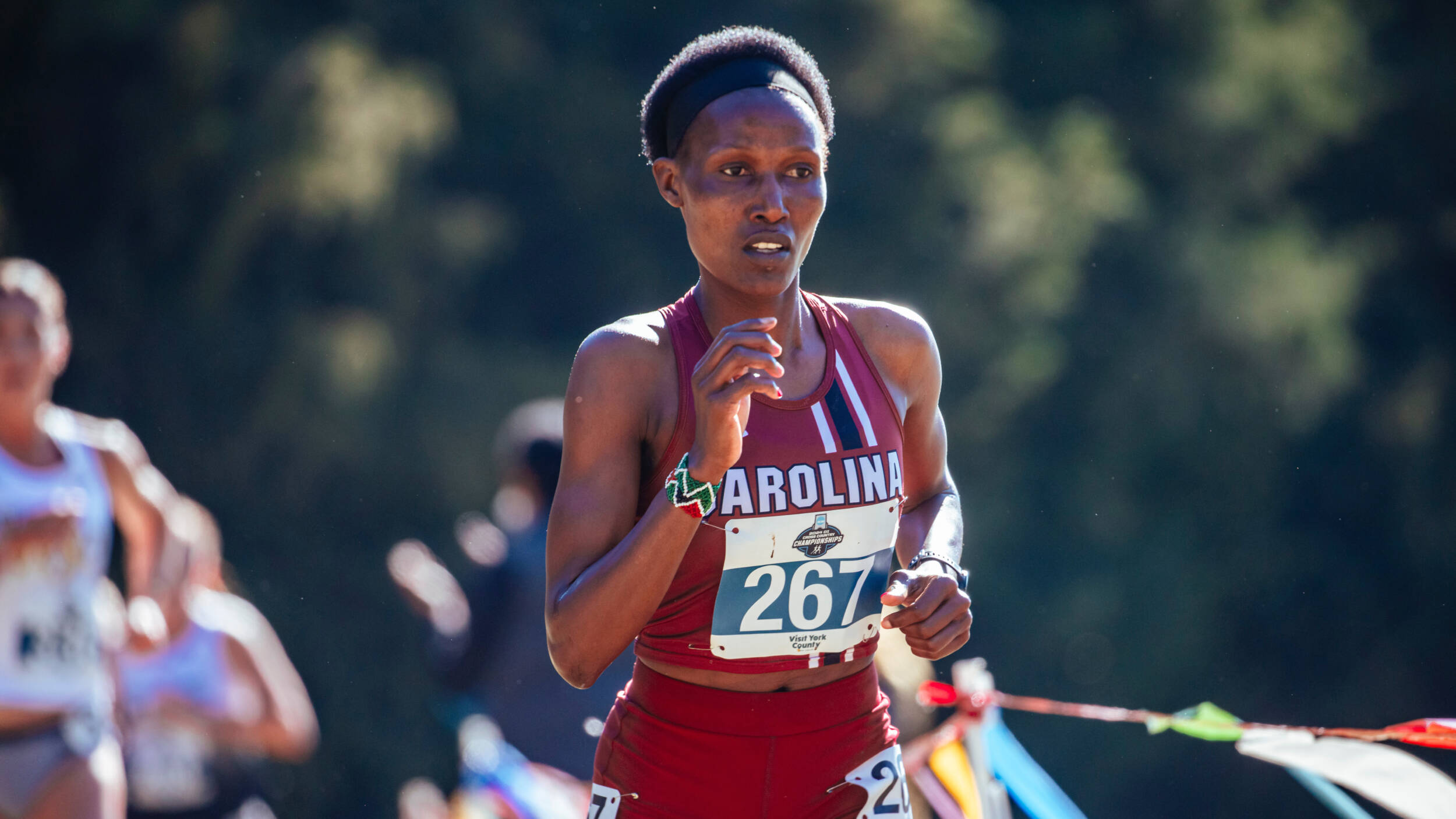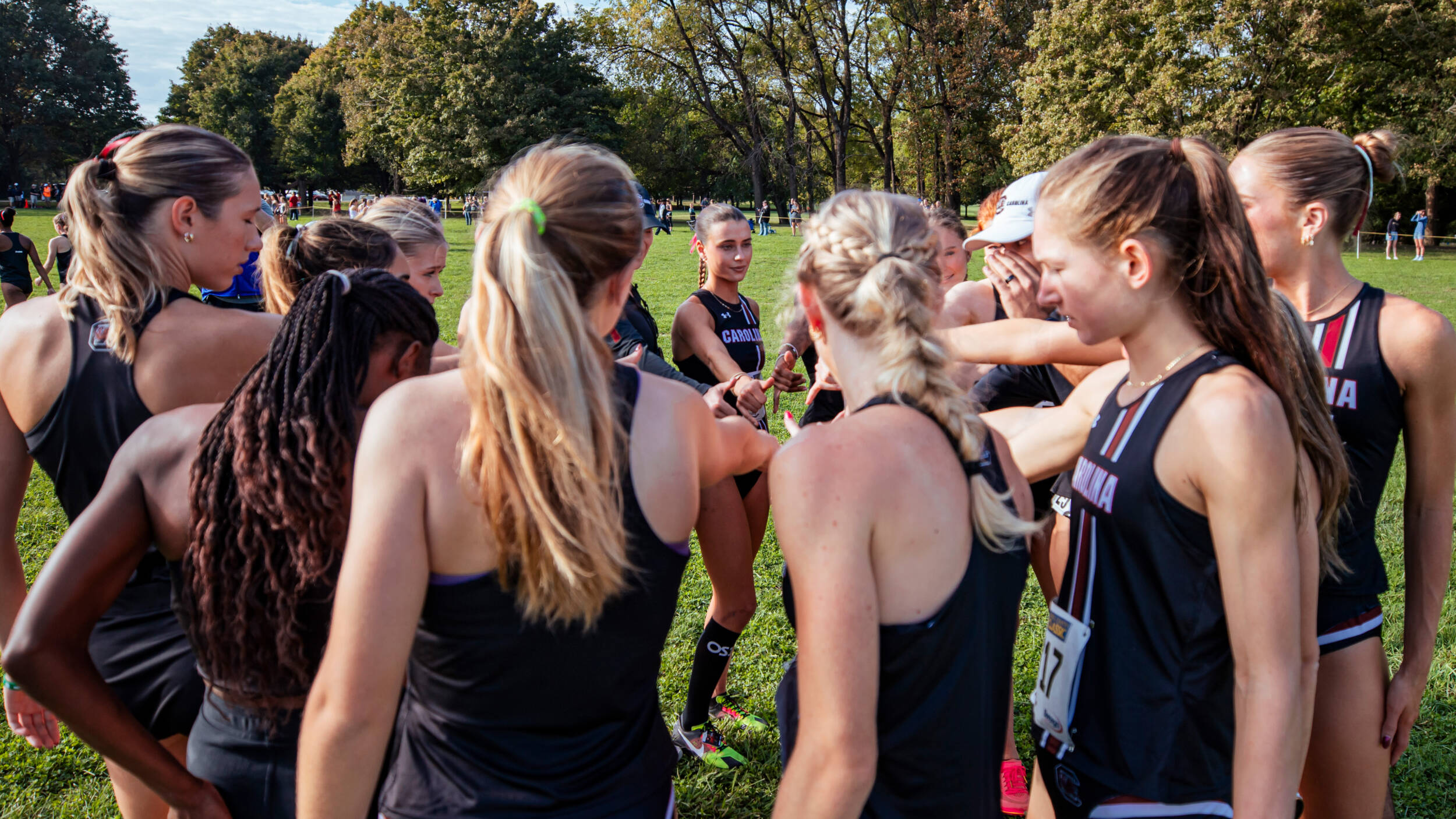
Kavanaugh Goes More Than the Extra Mile to Help Others
Macie Kavanaugh spent her birthday and part of her summer vacation in Guarari, Costa Rica, but it wasn’t exactly a day at the beach. The South Carolina cross country/track & field sophomore spent a week in July on a mission trip with members of her family and her church to help provide eye care to underprivileged people there.

“We drove by the beach, but we never went to the beach,” Kavanaugh said. “There were a lot of tin houses. They picked up scraps and made their houses out of it. There were a lot of dirt floors and single room houses.
“It was a group of 17 people that went on the trip. We hooked up with missionaries who lived there as well. We checked everyone’s acuities, which is where you have them read the letters on a chart. We had so many people coming in.”
A member of South Carolina’s prestigious Honors College, Kavanaugh is studying biomedical engineering and hopes to eventually work in prosthetics and perhaps help veterans of the U.S. Armed Services. This was her third mission trip in the last four years.
“It’s always been in my heart to go and help people,” Kavanaugh said. “That’s one of the reasons I want to get into prosthetics. I’ve always been good at math and science, and I genuinely just wanted to find ways to help people who need it.
“It makes me feel good to see other people feel good. Helping other people helps yourself, too. It changes your heart, and I think it’s important to have a heart where you’re willing to serve others. It gives me more of a purpose.”
“I think that helps to show us that we shouldn’t take all that we have for granted.”
– Macie Kavanaugh
Among the group on this trip was her mother, Penny, and father, Barry, who is an optometrist. Kavanaugh said they easily saw more than 100 patients per day for a variety of reasons.
“For teens and younger, if they couldn’t read, we wanted to see them,” Kavanaugh said. “If anyone had any eye pain, we wanted to see them. If they didn’t have a problem with distance, we sent them to a readers table and had them point to a line they could see clearly. If they couldn’t see a certain line, we’d give them a prescription and start from there.

“We wanted to give something to anyone who came in. If there were kids there that didn’t have anything wrong with their eyes yet, we gave them sunglasses to help prevent things from happening in the future.”
Kavanaugh helped customize the eyewear needs of the patients as well.
“I know a pretty good amount of Spanish, mostly eye-care related because I have been on a trip like this before,” Kavanaugh said. “Sometimes I was a first stage translator between the area where there were distances glasses and the readers table. I helped test to see if they needed readers (glasses), and if there were prescription glasses needed, we would put those together by hand. So, if they needed a +4 lens in one eye and nothing in the other eye, we could personalize that.
“I would tell them if their glasses were solely for distance or solely for reading and helped make sure they could see clearly once they received their glasses.”
The group also created a list for anyone who needed surgery to correct their vision, and the local missionaries would follow up and provide care when possible as money was raised. They were also able to provide some eye drops and medications.
While the patients were appreciative to receive the care, Kavanaugh said the joy she received from helping others was a life-changing experience.
“There was one young girl, who was 16, and I have a picture of her with her baby,” Kavanaugh said. “Her prescription was +4, which is pretty bad for someone that young. We put the glasses on her and when she looked at her child, she said she had never been able to see her kid’s eyelashes or eye color. It was her first time clearly seeing her baby’s features! She started tearing up. We would get a lot of instances like that.
“Some people would come in with their bibles and tell us that they want to be able to read this. We gave them readers so they could read. We put glasses on a little kid who needed a prescription, and he’d be so excited because most of them were from slums. They value education because it helps get them get out of there. When they can’t see, they don’t do well in school. Now they’d say, ‘I can read!’ They’re so excited to be able to do schoolwork. It was amazing to see that.”
While balancing academics and athletics takes up a lot of her time now, Kavanaugh said she will definitely do something like this again, even if it falls on her birthday.
“I like helping people, so this was a good birthday gift,” Kavanaugh said. “For us, a pair of reading glasses may not be a huge deal because we can get them anywhere. For them, they may not have many doctors near them, or they may not be able to travel to see any doctors. So that simple pair of glasses means to the world to them. I think that helps to show us that we shouldn’t take all that we have for granted.”












